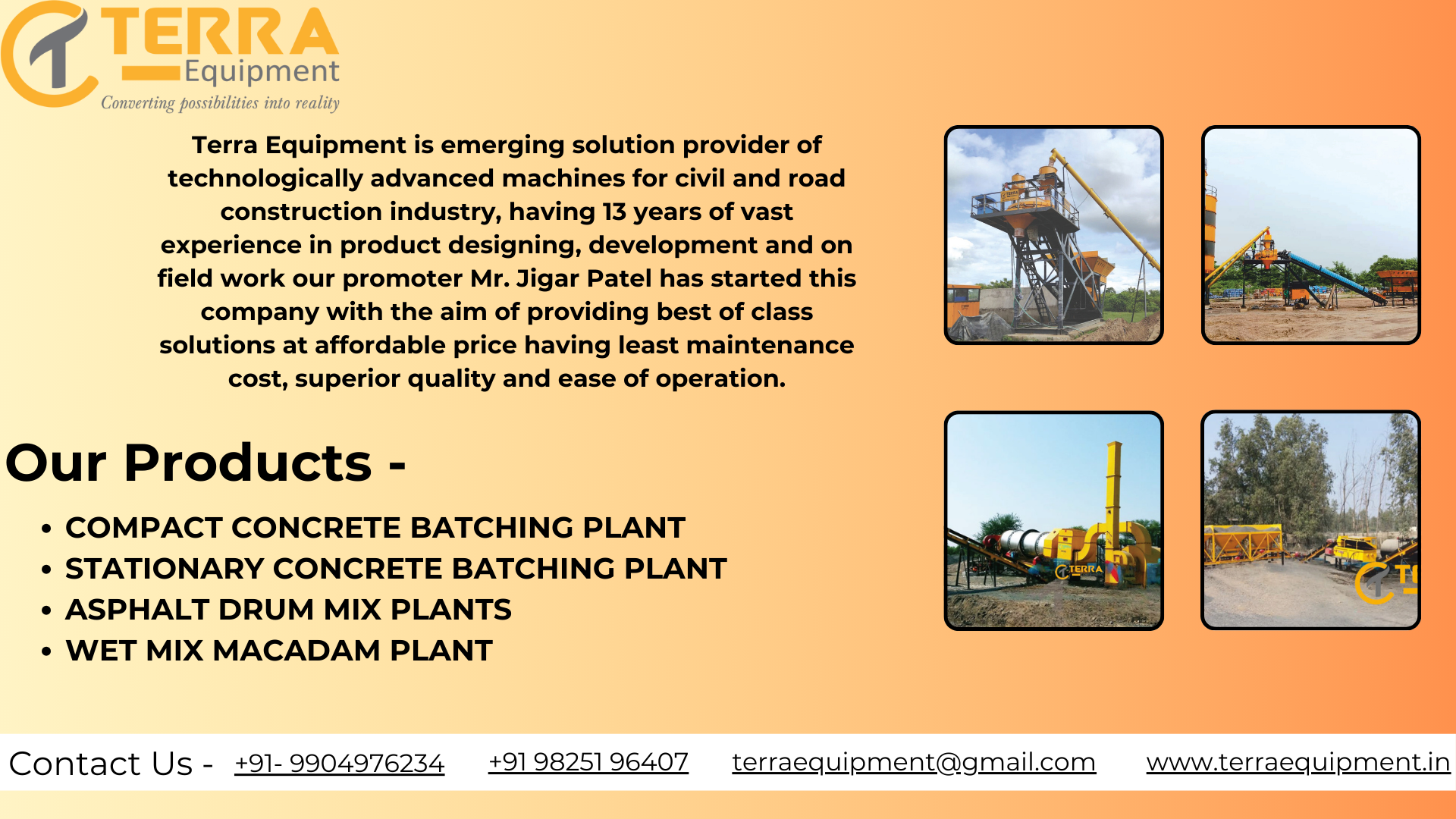Introduction — Reversible Concrete Mixer
A reversible concrete mixer (RM-800/RM-1050 class) uses a single drum that rotates in one direction to mix and the reverse direction to discharge. With a hydraulic hopper, load-cell weigh batching, and spiral blades, it delivers uniform, on-site concrete with faster cycle times and less spillage. Robust frames, puncture-resistant tyres, and guarded drives make it reliable for urban sites, roads, and small precast yards. For rapid deployment and consistent quality, Terra Equipment reversible mixers combine rugged design with PLC-enabled batching for traceable output.
Working Principle & Process Flow — Reversible Mixer
Aggregates, cement, and water are charged via a hydraulic hopper and weigh batcher. In forward rotation, internal helical blades lift and fold materials to achieve a homogeneous mix. After the set cycle, the drum rotates in reverse, and the same blades guide concrete to the discharge chute for placement. Optional admixture dosing and water meters improve consistency, while recipe presets on PLC/HMI help repeat mixes across batches.
Applications & Benefits — Reversible Concrete Mixer
- On-site concreting for villas, small commercial projects, and repairs.
- Roads & pavements: kerbs, side drains, and patchwork RCC.
- Precast elements: pavers, blocks, U-drains, small beams/panels.
- Remote/space-constrained sites where RMC transit access is limited.
- Forward–reverse drum → single machine for mixing and discharge with minimal spillage.
- Load-cell weigh batching → consistent slump/strength, reduced cement overuse.
- Hydraulic hopper & guarded drives → faster cycles and safer operation.
- Compact footprint → easy to reposition and mobilize within the jobsite.
Key Features — Reversible Concrete Mixer
- Forward mixing / reverse discharge drum with wear-resistant helical blades.
- Hydraulic hopper with safety grate and auto-return for rapid charging.
- Load-cell weigh batcher with PLC/HMI recipes and water meter for accurate dosing.
- Heavy-duty ring gear, robust chassis, and high-torque gearbox for continuous duty.
- Grease points, sealed bearings, and guarded V-belts to lower maintenance.
- Optional tow bar, jockey wheel, lighting kit, and admixture dosing pump.
Top Manufacturers & Suppliers in India
While shortlisting a reversible concrete mixer, prioritize drum thickness, gear ring quality, weigh-batch accuracy, and responsive support. Terra Equipment offers RM series mixers with load-cell batching, hydraulic hoppers, and PLC presets for repeatability. Rigid frames, guarded drives, and sealed electrics improve uptime. Each supply includes commissioning, operator training, and documentation so your crew consistently produces spec-grade concrete on site.
Maintenance & Safety Tips — Reversible Mixer
Monthly / Quarterly
- Inspect ring gear, pinion, and gearbox oil; check V-belt tension and replace worn belts.
- Calibrate load cells and water meter with test weights/volumes; update certificates.
- Grease bearings and hopper pivots; check drum liners/blades for wear and integrity.
Operating Best Practices
- Follow charge order: coarse aggregates → cement → sand → water/admixture for uniformity.
- Never reach into drum or hopper; keep guards closed and use lock-out during service.
- Rinse drum and chute after each cycle; prevent build-up that affects batch capacity.
FAQs — Reversible Concrete Mixer
Q1 What capacity should I choose—RM-800 or RM-1050?
Q2 How is a reversible mixer different from a tilting drum or transit mixer?
Q3 Can I get electric or diesel drive options?
Q4 How do I ensure accurate batching on site?
Q5 What safety features should I look for?
Get in Touch
Terra Euipment • We’re here to help

